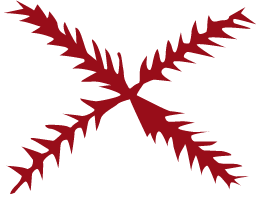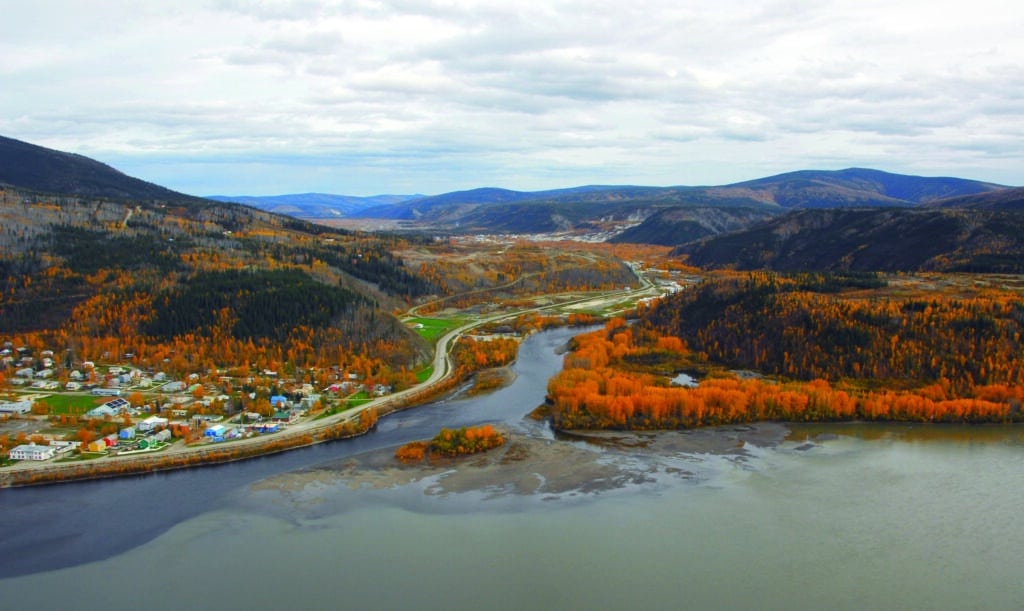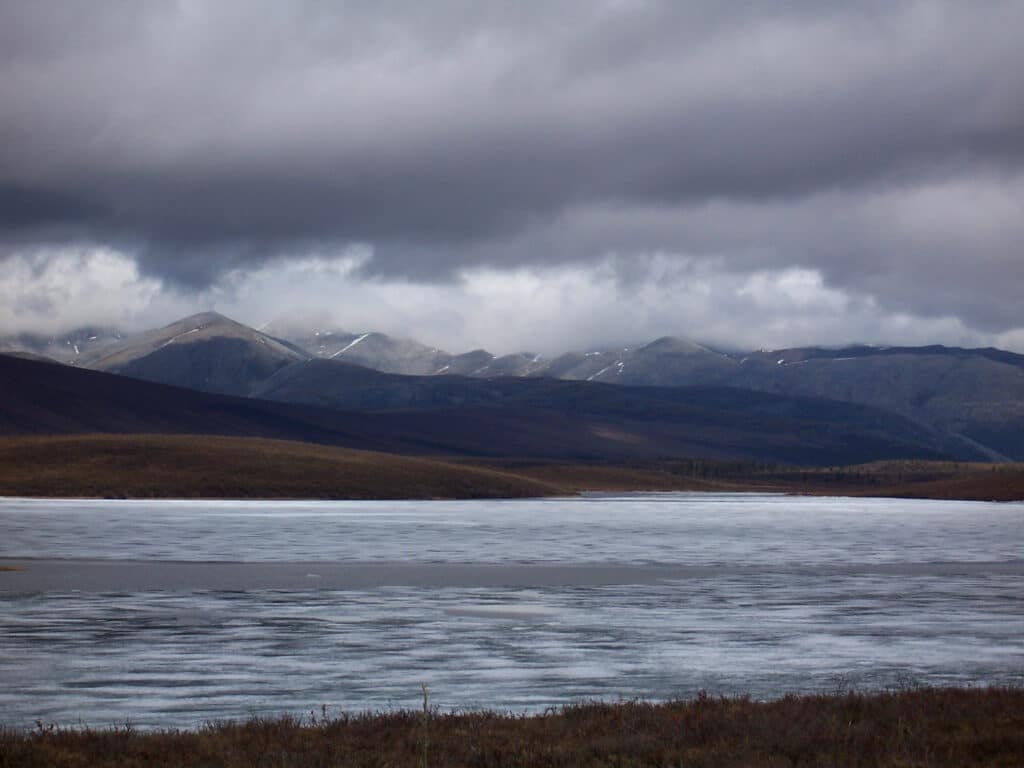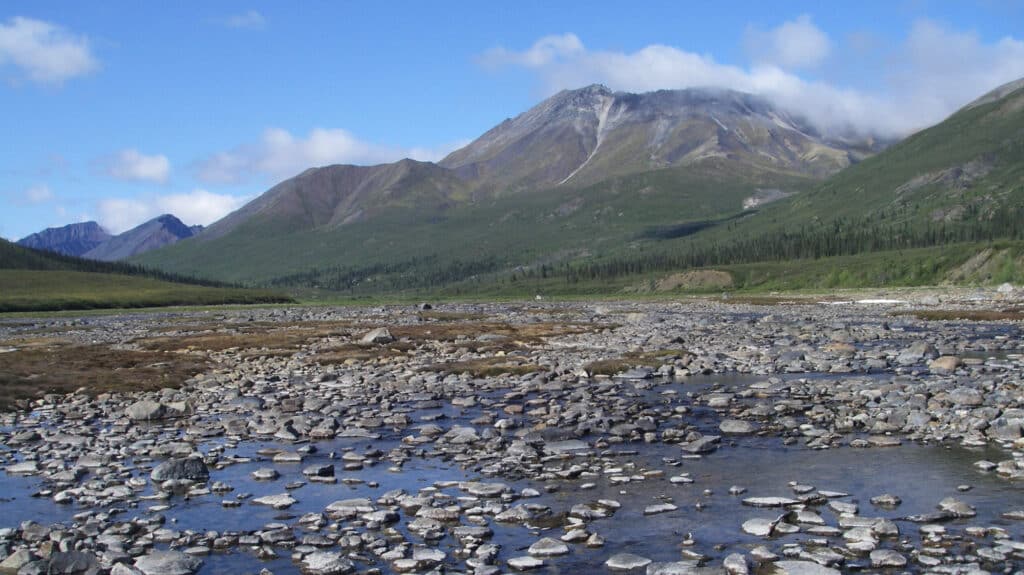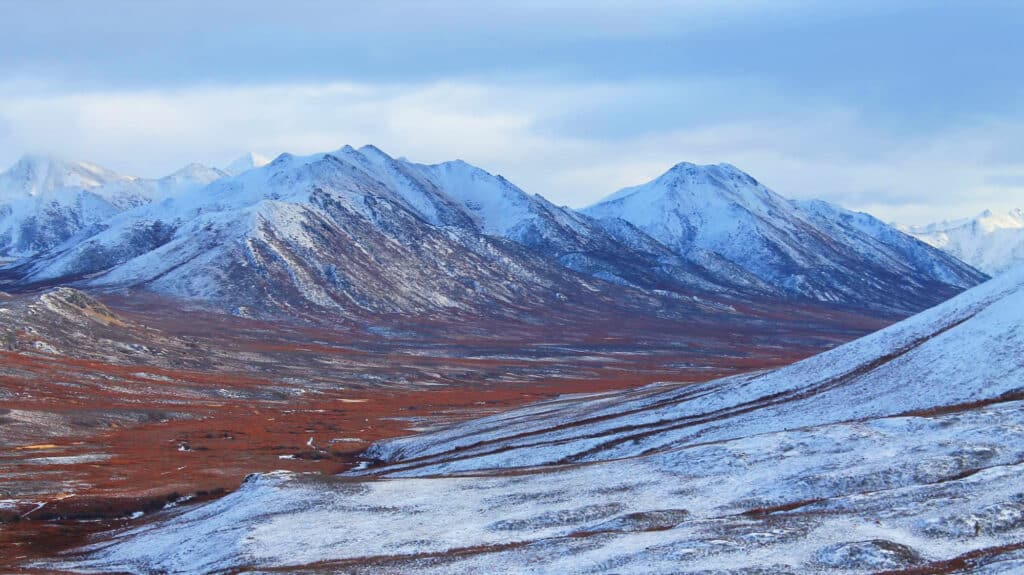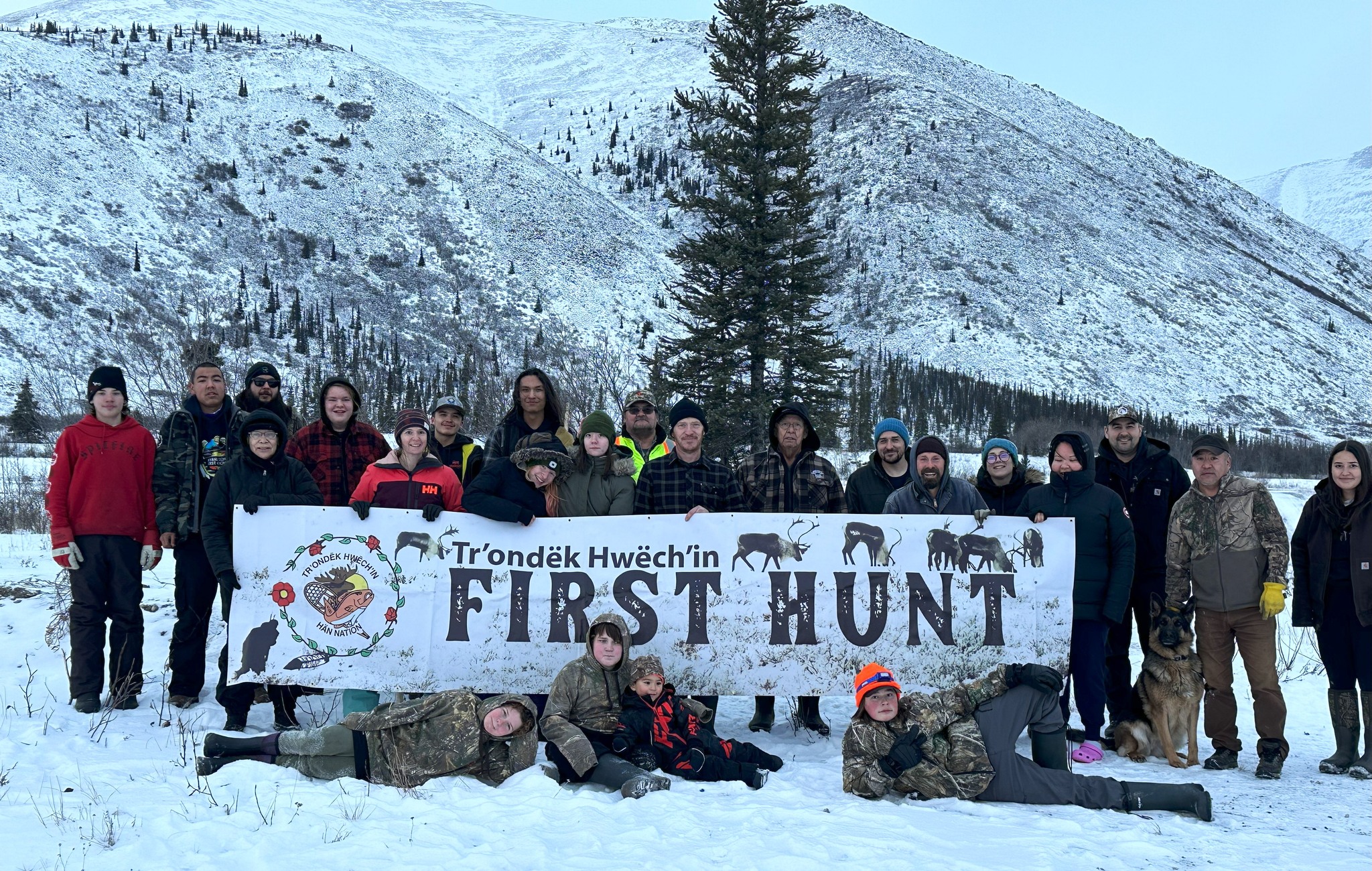That’s a God country there ‘cause there's a lot of game there, everything there, so people from all overuse that country because it's pretty wealthy for game and caribou, sheep, you name it, they all there.
Percy Henry, 1993
Ddhäl Ch’èl Cha Nän means “ragged mountain land”. Covering 2,200 square kilometres this land is a legacy of the Tr’ondëk Hwëch’in Land Claim Agreement and lies within our Traditional Territory. The designation of Tombstone Territorial Park as a natural environment park was part of the Tr’ondëk Hwëch’in Final Agreement. This agreement recognizes their ancestral ties to this land and ensures its future protection.
The dramatic mountains, valleys, and rivers of Ddhäl Ch’èl Cha Nän (Tombstone Territorial Park) have a powerful impact on the first-time visitor. This experience is much enriched when the traveller learns that this landscape abounds in stories that are equally impressive. The land itself is a record of the shaping of continents, the movements of long-ago glaciers, and the unique features of a subarctic landscape underlain by permafrost. The seemingly stark country is home to a rich variety of flora and fauna, including some species that re unique to the area. This land sustained hardy people who developed the skills and knowledge to support themselves in this inhospitable environment. The people left many records of their relationships to the land ranging from ancient campfire hearths surrounded by stone tools to relatively recent hunting and fishing camps; and everywhere are the Hän and Gwich’in place names given to landmarks throughout their traditional territories. More recent stories include the construction and maintenance of one of the country’s most challenging highways, and stewardship of the Porcupine Caribou Herd.
Historic Sites
The Blackstone Uplands within our Traditional Territory is an area of great cultural importance to the Tr’ondëk Hwëch’in and Gwich’in people. People occupied at least three sites in the Blackstone Uplands in the late 19th and early 20th century: Black City, Calico Town and Ts’ok giitlin. People stayed here in the fall and winter, intercepting the fall migration of the Porcupine Caribou Herd, a major source of food and clothing.
For more information, please visit our Black City page.

Continuing past teachings to future generations
Tr’ondëk Hwëch’in organises number of educational cultural camps a year on our Traditional Territory, enabling Elders, citizens, and youth to come together and share knowledge and practices out on the land.
Recent Camps
Tr’ondëk Hwëch’in First Hunt Camp that took place at Cache Creek, km 131 on the Dempster Highway from October 19th – 22nd.
A team of Tr’ondëk Hwëch’in hunters, guides, elders, and Tr’ondëk Hwëch’in staff took care of 10 youth receiving teachings out on the land. Over a few days they learned how-to harvest small game and caribou and participated in traditional activities including jarring, beading and archery. Youth were recognized for attitude, skill learning and winning at Dënezhu Bingo.
Coordinated by Sharon Vittrekwa, Cultural Education Coordinator for the Heritage department, she shares her reflections and a reminder of the importance of these teachings in a respectful way:
“Teachings are connected to learning the importance of the circle of life and the caribou. The caribou are our lifeline. By instilling the traditional values to our youth, we create our new head leaders in respect and acknowledgment of our herd leaders Les John and John Taylor.”
Visitors to the Park
Start your visit at the Tombstone Interpretive Centre at kilometre 71.5 on the Dempster Highway. Expect to drive 1.5 hours from Dawson City, 7 hours from Whitehorse and 12 hours from Inuvik, NWT. For the 2024 season, the centre is open daily, 9 am to 5 pm, from May 18 to September 22, including holidays.
More information on camping permits, facilities, and maps are available at: Yukon.ca/tombstone-territorial-park.
